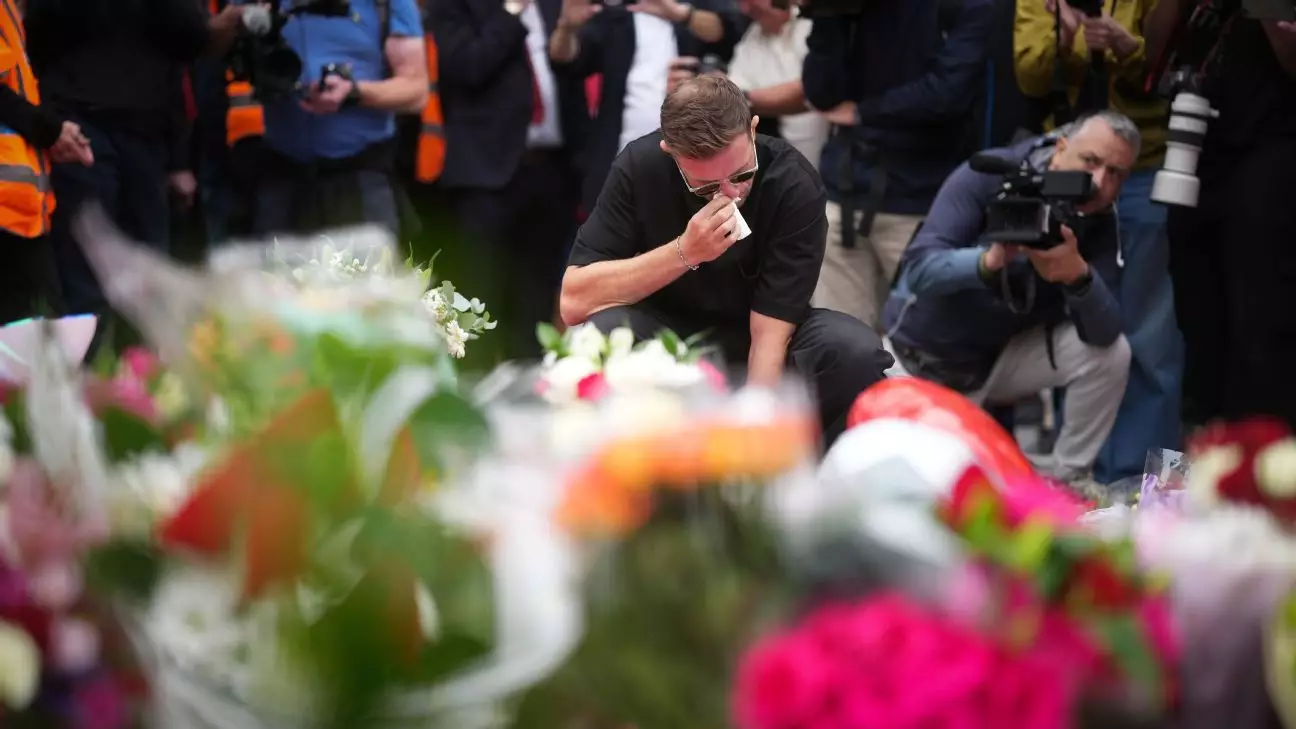The untimely death of Diogo Jota has sent shockwaves far beyond the confines of Liverpool FC. It lays bare a startlingly harsh reality: that even the most seemingly invincible athletes are vulnerable to life’s cruel unpredictability. This tragedy is not just a fleeting headline but a stark reminder that our most cherished figures—those we look up to on the pitch—are profound human beings with lives deeply intertwined with loved ones and personal aspirations. The emotional responses from teammates and fans reveal a collective grief rooted in empathy, yet also reflect society’s fragile relationship with mortality and the fleeting nature of life.
For many, sports serve as an escapism, a source of inspiration and resilience. However, Jota’s death pulls back the curtain, exposing the raw vulnerability beneath the veneer of athletic prowess. His friends and colleagues speak of a lively, loving family man whose off-field life was filled with warmth, stability, and hope. Still, the devastating crash that claimed his life underscores the unpredictable, often cruel randomness that can shatter any semblance of normalcy. It’s a disturbing lesson—despite physical strength or mental resilience, every individual remains vulnerable to forces beyond their control, forces that spare no one, regardless of fame or fortune.
The Cultural and Emotional Significance of Collective Mourning
Society tends to idolize athletes, elevating them to status figures who embody strength, perseverance, and excellence. Yet, Jota’s death punctuates the critical need to humanize these icons—a reminder that behind the jerseys, stats, and accolades are real families, real emotions, and a deep capacity for suffering. The outpouring of grief from Liverpool’s community highlights how sports can serve as a unifying force in times of tragedy, forging a collective sense of mourning that transcends national borders.
Moreover, the public expressions of grief from figures like Van Dijk, Henderson, Salah, and Alexander-Arnold reveal a shared understanding that personal loss is universal. Their words, tinged with heartbreak and nostalgia, remind us that even in a professional world driven by competition, camaraderie and compassion are paramount. These athletes, often seen as symbols of resilience, show vulnerability, emphasizing that emotional openness can be a strength, especially in facing immense pain. Society at large should take heed of such genuine grief—these moments of collective mourning ought to foster compassion, support, and a genuine reexamination of how we perceive heroism.
The Consequences of Tragedy on Personal and Professional Lives
In the immediate aftermath, the focus naturally shifts towards the personal devastation inflicted upon Jota’s family—the young children, his wife Rute, and the grieving parents. The intimacy of this loss challenges social narratives that often treat athletes as distant figures of admiration rather than multi-dimensional personalities. The images of flowers, heartfelt messages, and community gatherings outside Anfield serve as poignant symbols of solidarity, yet they also expose an uncomfortable truth: that beneath the fame, these tragedies are deeply human and evoke profound empathy.
But beyond individual grief lies the broader implication of how society, clubs, and governing bodies respond to such tragedies. Support systems, mental health resources, and community interventions become essential in aiding families and fans alike. The footballer’s narrative shifts from mere competition to an arena of shared human experience—where loss and resilience become intertwined. Jota’s death also prompts critical reflection on safety measures for drivers and the importance of preventative regulations, emphasizing that no one is immune from life’s unforeseen tragedies.
A Call for Greater Reflection and Responsibility
This heartbreaking incident should compel us to rethink our collective approach to mortality and societal responsibility. As fans, we idolize athletes, yet we often forget that their lives are just as fragile as anyone else’s. The devastating impact on Jota’s grieving family, especially with such young children, underscores the need for compassion, understanding, and societal accountability.
From club management to fans worldwide, there is an urgent necessity to foster environments where grief is openly acknowledged and support is actively provided. We must challenge the narrative that elevates athletic success to an almost untouchable status, recognizing instead the pitfalls of idolization that can obscure the vulnerabilities inherent in all human beings. In doing so, society can cultivate a stronger, more empathetic community—one that values human life above fleeting fame and fleeting victories.
This tragedy confronts us with uncomfortable truths about life’s impermanence, urging a shift towards a culture that balances admiration with compassion, resilience with vulnerability. Only by embracing our collective humanity can we hope to forge a community resilient enough to withstand the devastation of such losses.

Leave a Reply